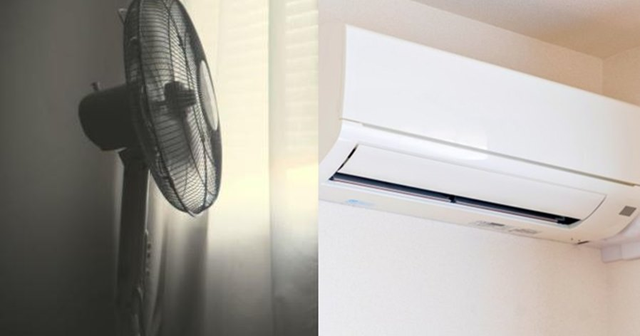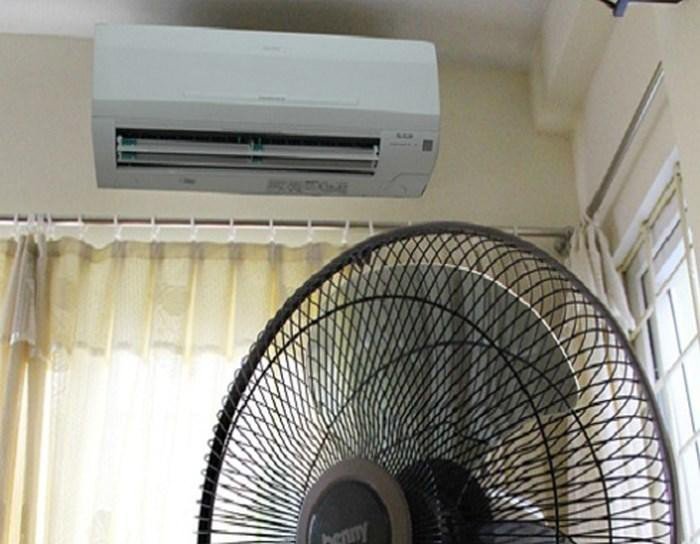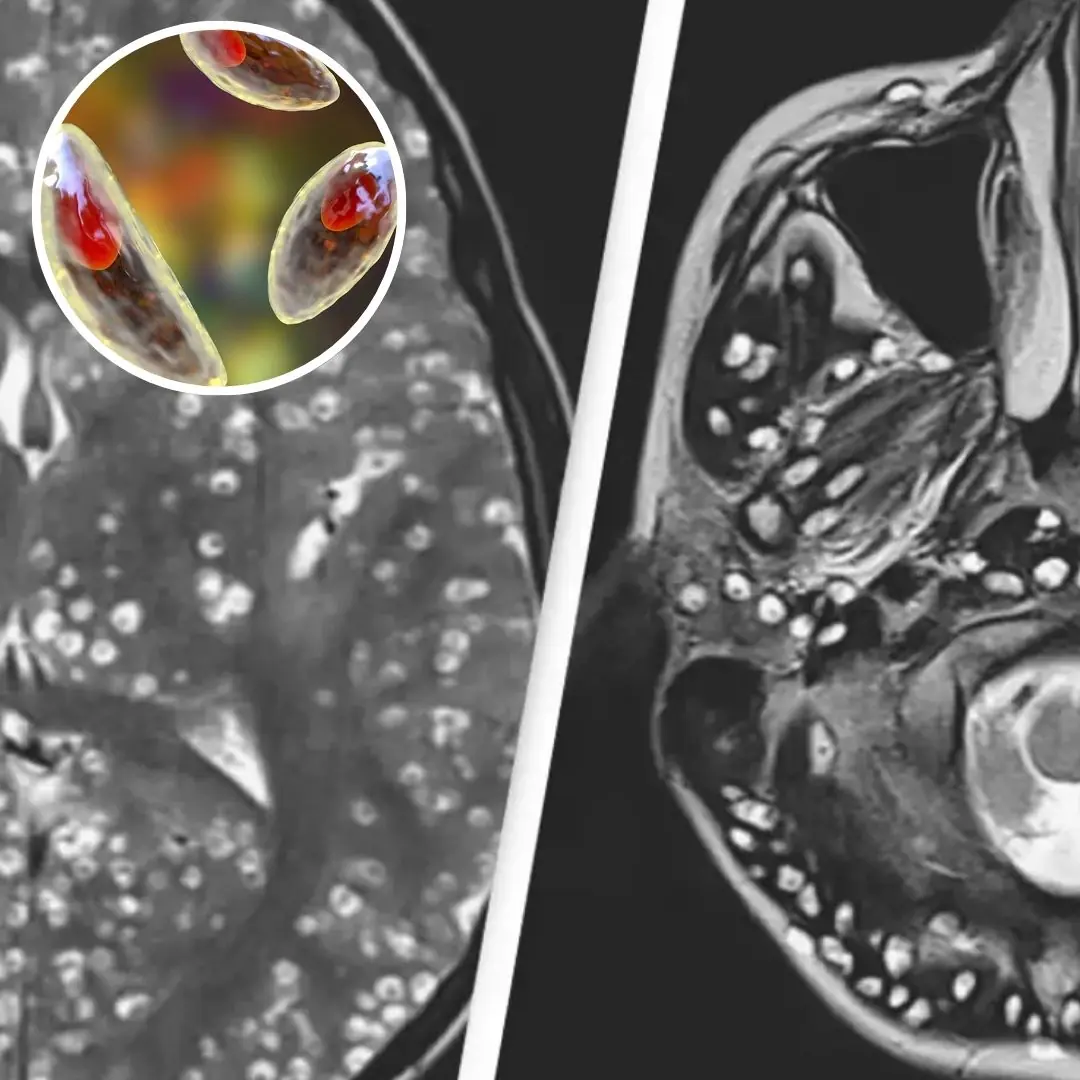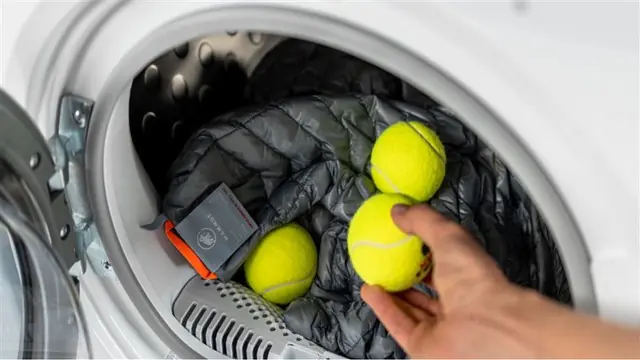
Which Causes a Cold More Easily: Fan or Air Conditioner?
Which Causes a Cold More Easily: Fan or Air Conditioner?
Colds are a common illness everyone experiences at some point. During hot summer days, many people who catch a cold often wonder whether they should use air conditioning. So between electric fans and air conditioners, which is more likely to cause a cold? And what should you be aware of when using air conditioning in the summer?
Should You Use Air Conditioning When You Have a Cold?
When you have a cold, your body is weaker and your ability to regulate body temperature is impaired. Sudden temperature changes can worsen symptoms. That said, using air conditioning isn’t strictly forbidden—it just needs to be used correctly.
If it’s very hot and stuffy indoors, turning on the air conditioner can improve comfort. In this case, set the temperature to around 26–28°C (78–82°F) and avoid letting cold air blow directly on your body. Also, avoid staying in an air-conditioned room for too long—take breaks outside to help your body gradually adapt to outdoor temperatures.
However, if the room is not overly hot or your cold symptoms are severe (runny nose, headache, fever), it’s better to avoid air conditioning and instead use a fan or open windows for ventilation.
Which Is More Likely to Cause a Cold: Fan or Air Conditioner?
Both can cause colds if used incorrectly.
-
Fans promote air circulation and evaporate sweat quickly, providing a cooling effect. However, if a fan blows on one part of the body for too long, the temperature in that area drops, blood vessels constrict, and the body may not adapt fast enough—leading to a cold. This is especially risky while sleeping, as the body’s response slows down. Prolonged direct exposure to a fan overnight significantly increases the risk of catching a cold.
-
Air conditioners pose a different risk. The main issue is sudden temperature changes between the hot outdoors and a cold room, which can shock the body. Air-conditioned rooms are also enclosed, making it easier for viruses and bacteria to spread if someone in the room is already sick. If the AC unit hasn’t been cleaned in a while, dust and germs can circulate through the air, increasing the risk of respiratory infections.
Tips for Safe Air Conditioner Use in Summer
-
Don’t Set the Temperature Too Low
Many people set the AC below 20°C thinking it cools the room faster. But it’s harmful. The temperature difference between indoors and outdoors should not exceed 7°C. The ideal setting is around 26°C, which is cool enough, saves electricity, and is gentler on the body. -
Avoid Cold Air Blowing Directly on the Body
Direct airflow can chill muscles and joints, causing headaches and body aches. Adjust the vents upward so cool air circulates gradually throughout the room. -
Ventilate the Room Regularly
Closed rooms lead to increased CO₂ and reduced O₂ levels, causing dizziness and discomfort. Open a window for 15–20 minutes every few hours to refresh the air. If that's not possible, consider using an air purifier or ventilation system. -
Clean the Air Conditioner Regularly
Dust and bacteria can accumulate in the filters and coils over time. If not cleaned, the AC will blow contaminated air. Clean the filter every 1–2 weeks—you can remove and rinse it with clean water and disinfectant. For internal parts, hire a technician for deep cleaning 1–2 times a year.
Other Helpful Tips
-
Don’t enter an air-conditioned room while sweating heavily. Dry off and let your body cool slightly before going inside.
-
Use the "sleep mode" at night, slightly raise the temperature, and use a thin blanket to avoid catching a cold while sleeping.
-
Be extra cautious with the elderly, children, or those with weak immune systems—don’t leave them in a cold room for too long.
By using both fans and air conditioners wisely and understanding how your body reacts, you can enjoy cool comfort in the summer without compromising your health.
News in the same category


People Who Regularly Eat Cucumbers May Experience 3 Remarkable Changes Over Time

5 cheap household items that can bring can,cer to the whole family

Eating a handful of this vegetable is as precious as "poor man's ginseng", it grows all over the fences in the countryside but few people know about it

This delicious dish "has more iron than pig liver", a must-have this summer, you will love it!

Too Lazy to Drink Water? These 7 Health Problems Might Catch Up with You

Golden hours to know to drink coffee to maximize health benefits

Eating a Handful of This Leafy Green Is as Valuable as “Ginseng for the Poor”

Garlic Skins Have 4 Surprising Benefits

The Surprising Use of the Small Hole on Padlocks That Many People Don’t Know

Te.r.r.ifyi.ng study finds 30% of Americans could be infected with parasite that has ho.r.r.i.fic impact on brains

New study claims having these specific dreams every week 'triples' your r.i.sk of an early d.e.a.t.h

Doctor Reveals: People with These 6 Morning Habits Tend to Look Younger and Live Longer

How Will Your Blood Pressure Change If You Eat Bananas Every Day?

Jackfruits with White-Painted Tops

Experts Warn That Some Vegetables Are a Source of Toxins and Should Not Be Eaten Raw

The Most Nutritious Part of the Chicken—“Pricier than Gold” Yet Often Thrown Away by Home Cooks

6 Smart Tips for Choosing Quality Honey Sellers Don’t Want You to Know

Doctors Warn: This Common Way of Eating Boiled Eggs Can Clog Your Arteries
News Post

Don’t Install Ceiling Fans in These 4 Areas of Your Home

People Who Regularly Eat Cucumbers May Experience 3 Remarkable Changes Over Time

Don’t Miss These 9 Key Signs of Depression — Early Awareness Can Save Lives

Put 3 balls in the washing machine, a tip to help clothes dry faster but very few people know

This type of fish costs only 1/5 of salmon but is richer in protein, making it one of the healthiest foods!

Doctor reveals the "golden key" to healthy blood: Very easy to do but few people pay attention

5 cheap household items that can bring can,cer to the whole family

Eating a handful of this vegetable is as precious as "poor man's ginseng", it grows all over the fences in the countryside but few people know about it

People who regularly eat cucumbers can soon experience 3 changes

This delicious dish "has more iron than pig liver", a must-have this summer, you will love it!

Silent Signs of Kid.ney Can.cer That Are Easy to Overlook

Too Lazy to Drink Water? These 7 Health Problems Might Catch Up with You

Put orange peel in the refrigerator, you will be surprised with its "golden 10" uses

Golden hours to know to drink coffee to maximize health benefits

Silent signs of kidney can.cer are easily overlooked

Eating a Handful of This Leafy Green Is as Valuable as “Ginseng for the Poor”

Garlic Skins Have 4 Surprising Benefits

Don’t Just Add Water to Rice—Add This for Softer, Tastier Rice That Lasts Longer Without Spoiling
